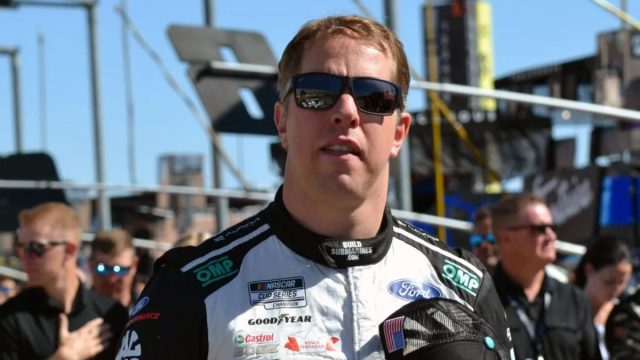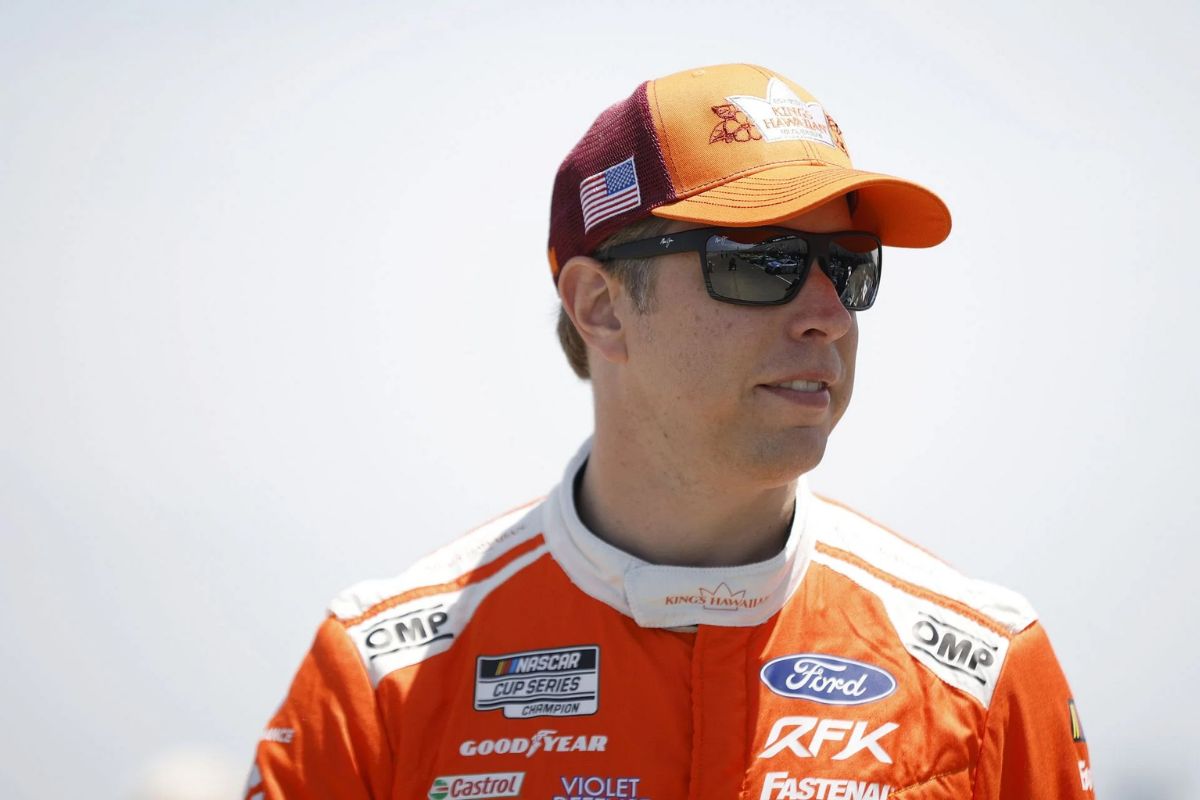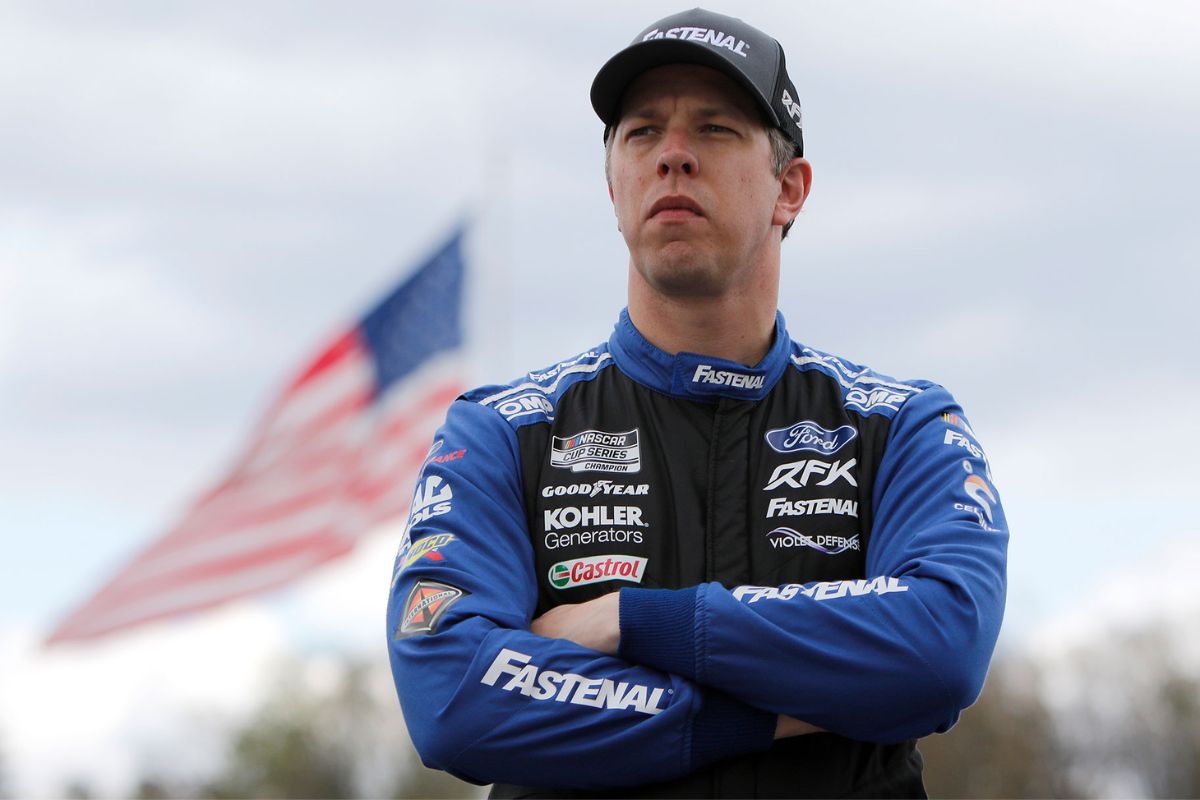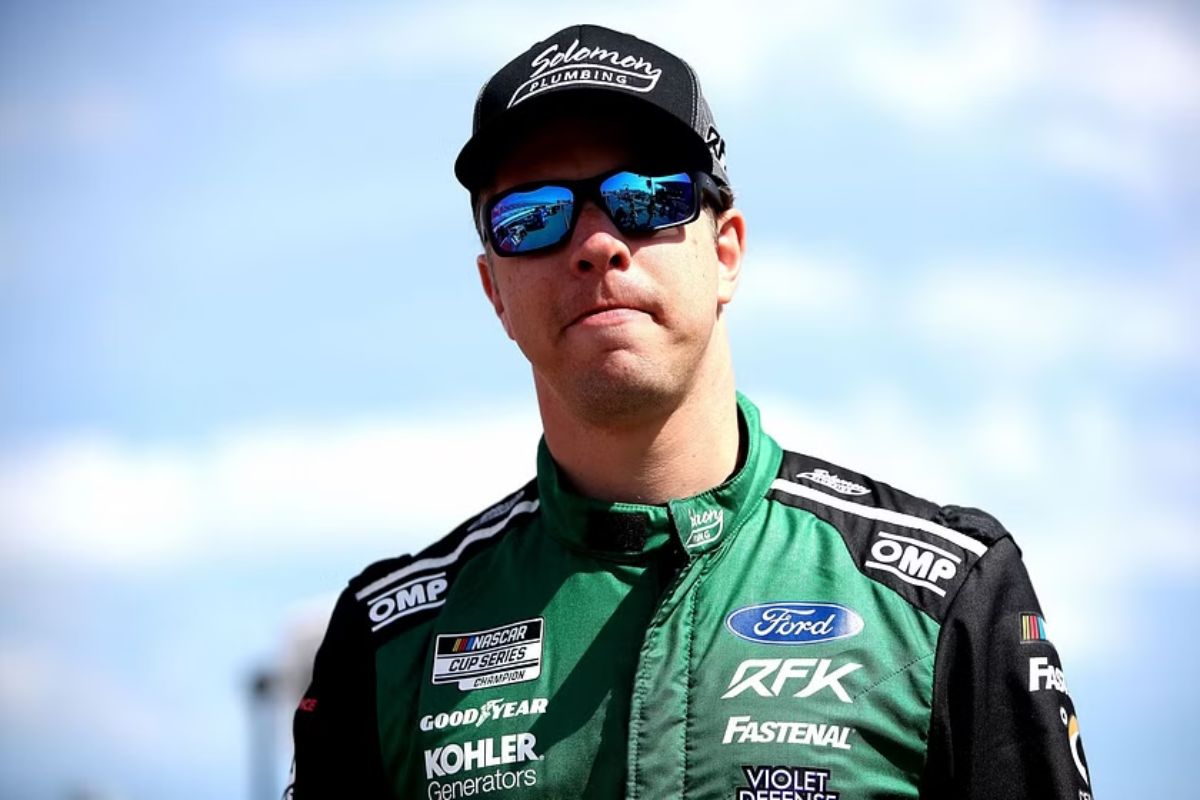Brad Keselowski’s Dover Disaster: In NASCAR racing, Brad Keselowski’s candid admission of fault following the Dover mishap provides a rare glimpse into the psychological resilience required at the elite level of motorsport. His declaration, ‘I screwed up,’ not only punctuates a moment of personal failure but also opens a discourse on the broader implications such errors have on a driver’s season and team morale. This incident, pivotal for Keselowski’s playoff prospects with RFK Racing, invites us to ponder the balance of accountability and support within top-tier racing teams.
Key Takeaways
- Brad Keselowski admitted his mistake during the race at Dover, leading to an early exit.
- His error affected his accumulation of crucial stage points.
- Keselowski expressed deep disappointment over the incident, impacting his season standings.
- He committed to using the setback as a learning opportunity for future races.
- The incident shows the pressure on RFK Racing to enhance Ford’s performance in the NASCAR Cup Series.
Keselowski Disappointed After Dover DNF
Reeling from an unexpected spinout at Dover International Speedway, Brad Keselowski expressed deep disappointment over his premature exit from the race after his No. 6 car failed to finish Stage 1. The incident, which occurred just three laps before the end of the initial segment, not only dashed Keselowski’s hopes for a strong finish but also triggered a caution flag that impacted the race dynamics heavily.
Analyzing the situation, it’s clear that such spinouts, while not uncommon in NASCAR, carry profound implications, especially when they involve seasoned drivers like Keselowski. The timing of the spinout was particularly detrimental. Being so close to the end of Stage 1, Keselowski lost a critical opportunity to accumulate stage points, which are essential for securing a favorable position in the season standings and for playoff qualifications.
Keselowski’s Post-Race Confession
In the aftermath of the Dover race, Brad Keselowski openly acknowledged his error in judgment, attributing it to a costly miscalculation that deprived him of a top-10 finish. This candid admission underscores a pivotal moment in Keselowski’s season, reflecting both the immediate consequences of his mistake and its potential implications on his approach to racing.
“I screwed up. Should have finished top-10, but spun out and damaged the car. Learned some things, really excited to apply them over the next few weeks.”-Keselowski
- Acknowledgment of Error: Keselowski’s readiness to accept responsibility demonstrates a significant level of professionalism and maturity. It’s a trait that not only helps in personal growth but also fosters a constructive team environment conducive to addressing and rectifying issues.
- Impact on Performance: By admitting the misjudgment cost him a potential top-10 finish, Keselowski highlights the thin margins between success and failure in NASCAR racing. Such admissions can be critical for recalibrating strategies and execution in future races.
I screwed up. Should have finished top-10, but spun out and damaged the car.
Learned some things, really excited to apply them over the next few weeks. https://t.co/hq6ht7eSD1
— Brad Keselowski (@keselowski) April 28, 2024
Playoff Position Concerns
As the NASCAR Cup Series playoffs near, Brad Keselowski and Chris Buescher find themselves in a precarious position in the standings, raising concerns about their ability to secure a spot in the highly competitive playoff landscape. With Buescher now in 14th place and Keselowski slipping to 16th, every race, every lap, and indeed every decision on the track becomes notably magnified regarding its potential impact on their playoff ambitions.
Analyzing their current standings, both drivers are navigating on the edge of the playoff cutoff, which intensifies not only their individual performances but also the strategic decisions made by their teams. The shifting of positions between the two teammates indicates a fluctuating performance metric which, while not uncommon in NASCAR, presents a unique challenge as the season progresses towards its climax. The pressure to perform consistently and avoid errors is paramount.
For Keselowski, the recent ‘Dover Disaster’ as it has been termed, exemplifies the kind of setbacks that can be particularly damaging in these critical stages. A single misjudgment can drastically alter the playoff landscape, affecting not just an individual race but potentially the entire season’s outcome.
RFK Racing’s Efforts for Ford
RFK Racing’s dedication to rejuvenating Ford’s prominence in the NASCAR Cup Series is evident through their diligent efforts and strategic decisions on the track. Despite Brad Keselowski’s recent DNF at Dover, the team’s collective performance this season shows a focused approach to enhancing their competitiveness for Ford. Keselowski’s near-misses with top finishes, including P2 at Texas and Talladega, signal a potential resurgence.
- Consistent Performance: Despite not securing a win, Keselowski’s frequent high placements suggest a steady calibration of car performance and race strategy, aligning with Ford’s standards of excellence.
- Technical Improvements: The team has evidently worked on optimizing their cars’ speed and reliability, critical in converting qualifying positions into race day successes.
- Strategic Pit Stops: Decision-making during pit stops has been remarkably strategic, aiming to enhance track position without sacrificing car health, vital for enduring the grueling pace of Cup Series races.
Keselowski’s Perspective on Recent Performances
Brad Keselowski openly attributes part of his recent NASCAR performances to luck, yet he emphasizes a steadfast commitment to refining his racing approach. This nuanced perspective highlights an acute awareness of the volatile nature of motorsports, where the intersection of skill and serendipity often dictates outcomes. Keselowski’s acknowledgment of luck’s role does not detract from his agency; instead, it shows a pragmatic approach to the sport’s inherent unpredictability.
“I feel like the last two weeks especially. We’ve earned finishes we probably didn’t deserve.”
“It kind of ebbs and flows as the season goes. But when you have cars that are capable of winning, in general, you need to make it count.”-Keselowski
Keselowski’s focus on process over outcome reveals a sophisticated understanding of performance metrics in racing. By concentrating on the elements within his control—such as reaction times, pit stop efficiency, and communication with his crew—he strategically positions himself to capitalize on opportunities when they arise, regardless of the external variables at play.
Looking Ahead to Kansas
With the Kansas Speedway on the horizon, Keselowski and the RFK Racing team are strategically positioned to potentially end Ford’s victory drought this season. Recent races have showcased a promising uptick in performance from Keselowski and his team, fueling speculation about their prospects at the upcoming event. The Kansas Speedway, known for its 1.5-mile tri-oval shape and variable banking, presents a unique set of challenges and opportunities for drivers and their crews.
- Optimal Car Setup: The team needs to fine-tune the car’s aerodynamics and suspension to handle the track’s progressive banking and fast corners effectively.
- Strategic Pit Stops: Efficient and timely pit stops will be crucial. The team must execute flawless tire changes and fuel management, especially during the critical final stages of the race.
- Weather Adaptation: Kansas weather can be unpredictable. Adapting swiftly to changes in track temperature and wind conditions will be essential for maintaining optimal tire grip and car balance.
News in Brief: Brad Keselowski’s Dover Disaster
Brad Keselowski’s forthright admission following the Dover incident exemplifies a commendable level of sportsmanship and maturity. This approach not only reinforces the values of accountability and introspection but also serves as a crucial learning tool in the competitive sphere of NASCAR racing.
As Keselowski reflects on the implications of this setback for his season’s trajectory and playoff chances, his attitude towards continuous improvement and resilience remains crucial for future performances and his professional development within the sport.
Our Reader’s Queries
Q. Has Brad Keselowski ever won at Dover?
A. Hamlin had to withdraw from the Richmond race due to prior commitments to his Nationwide Series team. In his absence, Brad Keselowski secured his third Nationwide Series victory at Dover. The race took a dramatic turn when Kyle Busch suffered a tire cut on the restart, leading to contact between second-place Joey Logano and Keselowski, ultimately allowing Keselowski to pass both and claim the win.
Q. Did Brad Keselowski have a baby?
A. Yes, indeed. Brad Keselowski celebrated the arrival of his first son on November 4th, 2023.
Q. Who owns the number 6 car in NASCAR?
A. In the NASCAR Cup Series, Brad Keselowski and Chris Buescher will be piloting the No. 6 Ford Mustang GT and the No. 17 Mustang full-time, respectively. Additionally, David Ragan will take the wheel of the No. 60 Mustang part-time. Originally known as Roush Racing, the team underwent a name change to Roush Fenway Racing in 2007 under the leadership of John W.
ALSO READ: Brad Keselowski Defends NASCAR: “Racing Was Good”



